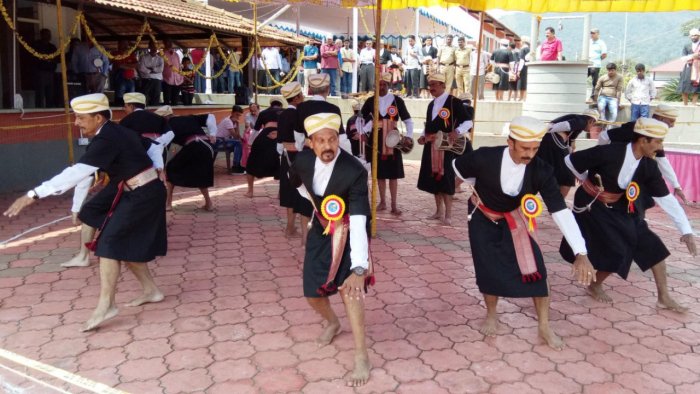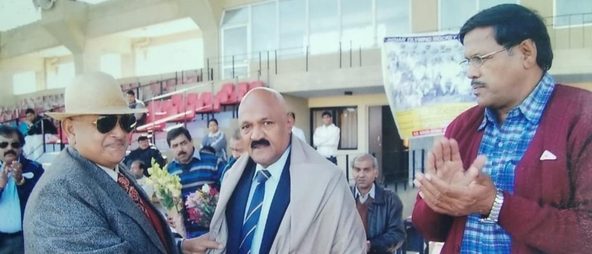Can the upcoming Census 2021 and the Karnataka assembly polls bring the spotlight on the decades-old demand of the Kodavas?

What is a common thread that runs through the following names: Field Marshal KM Cariappa, former Indian hockey team captain MP Ganesh, former Union minister CM Poonacha, sprinter Ashwini Nachappa, and actor Rashmika Mandanna? More than being celebrities in their chosen field of work and belonging to Karnataka, they all trace their origins back to Kodagu district, about 250 kms west of Bengaluru.
Kodavas are a group of people who have a distinct identity — a distinction that is no longer recognised by the State! For decades now the Kodavas have been demanding they be categorised as a distinct group, and two upcoming events could bring to the spotlight on the Kodavas’ cause: the delayed 2021 Census, and the Karnataka Assembly elections.
Unique Identity
The Kodavas were recognised as a distinct ethnic group, even during and much before the reign of the Lingayat rajas who ruled the Kodagu province since the sixteenth century AD. From 1947 till 1956, Kodagu was included in the list of Part C states along with Ajmere, Bilaspur, Bhopal, Tripura, Manipur, Delhi, Kutch, Himachal Pradesh, and Vindhya Pradesh. In 1956, on the recommendations of the States Reorganisation Commission, Kodagu merged with the then Mysore (now Karnataka) state as a separate district.
We do not have evidence as regards the Kodavas’ antecedents, and it is widely believed that they were migrants to the region during the third or fourth century AD. Little is known as to where they migrated from, and what made them settle down in the place they have done so. Going by their physiognomy, and compared with the other communities that inhabit the Kodagu district, the Kodavas are quite distinct and different in many ways.
Language, Religion, Customs
The language they speak, Kodava takk, is undoubtedly a Dravidian language in terms of its grammar and syntax, and is replete with words from the other Dravidian languages, besides words from Urdu, and Farsi.
Their religious practices, traditions, and customary laws too vary a great deal vis-à-vis the other religious groups and castes that are the Kodavas’ co-habitants. The Kodavas’ primary, and almost solitary, religious pursuit has been ancestor propitiation. Every Kodava okka (lineage) traces its descent from its Guru Karanava (common male ancestor) for whom they have a kaimada (shrine) in the vicinity of their ain mane (ancestral house).
The Kodavas do not have temples, nor do they solicit the services of any priests, Brahmin or otherwise, in any of their religious practices or rituals. Their marriages, births, naming ceremonies, deaths, etc, is officiated and performed by one of their own elders, and there is no place in these ceremonies for any Hindu rituals or recitations in Sanskrit or any other language.
In effect, they have no link whatsoever with the practices of the chathur varnas (Brahmin, Kshatriya, Vaishya, Shudra) nor do they have any caste affiliation or internal caste divisions among them, but for a miniscule subgroup known as Amma Kodavas who are, ideally, considered to be vegetarians and teetotallers.
Martial Tradition
The Kodavas have had a martial tradition and have been part of the armies of the Lingayat rajas and later of the British. From the time of the rajas, the Kodavas, along with some other communities, have been the beneficiaries of the lesser taxed jamma land tenure, which mandated that they offer their services to the palace for a few days every month. Details as regards these as also many other matters concerning living conditions and life in general vis-a-vis the rulers were notified as 53 decrees/orders by the penultimate raja of Kodagu, Lingarajendra Wodeyar, in the Hukumnama published in 1811. Jamma landholding conferred the right to possess firearms without licence. This practice is prevalent even today.
The 1941 Census came and went, with most of the Kodavas not realising that they had lost, unreasonably, their unique identity. More about that in Part II.
(MA Kalam, a social anthropologist, is Visiting Professor, Centre for Economic and Social Studies, Hyderabad. The author has been researching in Kodagu since the early 1970s.)
Disclaimer: The views expressed above are the author’s own. They do not necessarily reflect the views of DH.
source: http://www.deccanherald.com / Deccan Herald / Home> Opinion / by MA Kalam / February 23rd, 2023


